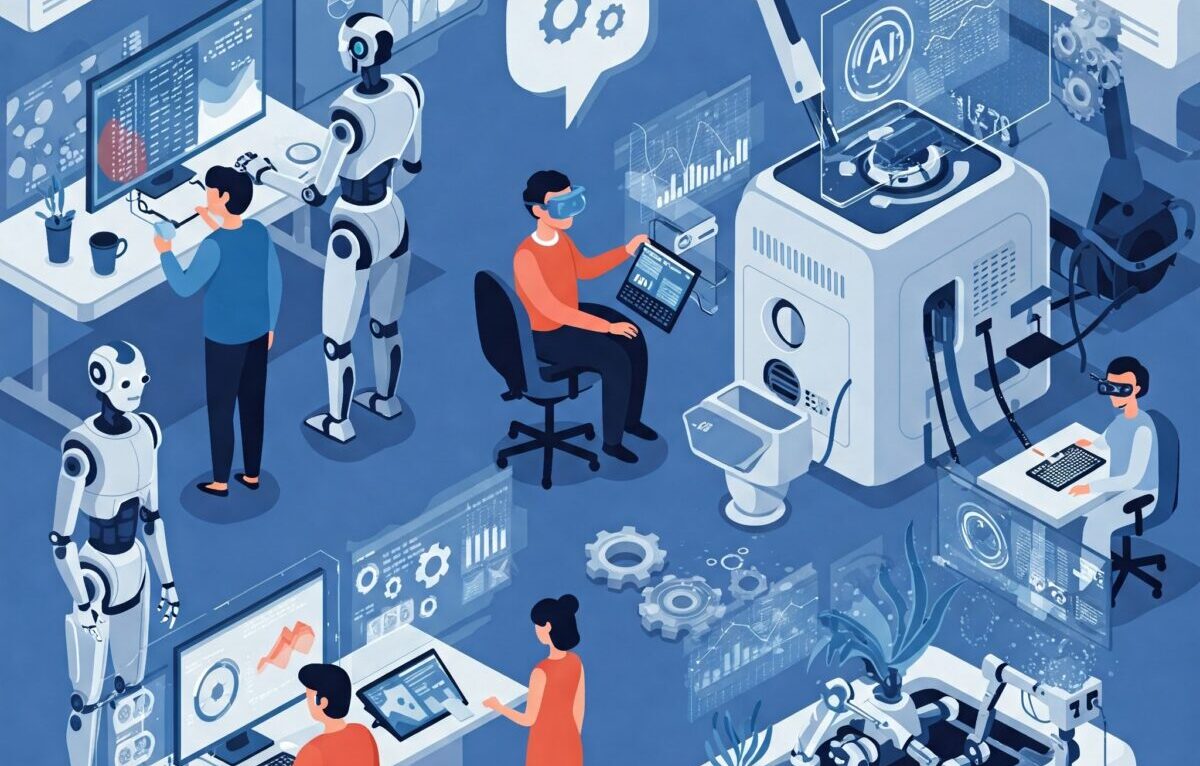A Changing World of Work
The world of work is undergoing a seismic shift, driven by the powerful and unstoppable force of artificial intelligence (AI). Automation, powered by increasingly sophisticated algorithms, is redrawing the boundaries of entire professions, opening up new possibilities while raising urgent questions about the future of employment and society. This isn’t just a simple change it’s a full-fledged revolution, one that calls on us to rethink how we work and which skills we’ll need to thrive in a rapidly evolving landscape.
The Automation Wave: What Jobs Are Changing?
AI and automation are already transforming industries across the board from manufacturing to services. Certain jobs, especially those involving repetitive and predictable tasks, are particularly vulnerable. Think of data entry, document management, assembly line work, or basic customer service. In these areas, machines often perform tasks faster, more efficiently, and with fewer errors than humans.
But AI’s reach extends far beyond so-called “manual” or routine jobs. Roles that require analysis and reasoning are increasingly affected as well. Algorithms can analyze financial data, diagnose diseases, write reports, and even provide basic legal advice.
That said, automation isn’t a one-size-fits-all process. Many jobs are made up of different parts some of which can be automated, while others still require human input and judgment.
New Frontiers: The Jobs of the Future
While AI and automation may replace certain roles, they are also creating entirely new ones. The future of work isn’t a bleak, empty landscape it’s an unexplored territory full of potential.
Consider the professionals who design, develop, manage, and maintain AI systems. We'll see increasing demand for AI engineers, machine learning specialists, data architects, and technical support teams.
But that’s not all. AI is also giving rise to new types of roles focused on managing its ethical and social implications. AI ethicists work to ensure systems are fair, transparent, and accountable. Algorithm translators bridge the gap between machine logic and human understanding. Automation managers help organizations navigate the transition to workplaces where humans and machines collaborate effectively.
Essential Skills: What Makes Us Unique
In a time of such rapid change, what skills will make us truly indispensable? What will set us apart from machines?
The answer lies in our humanity. Machines excel at repetition and data processing. But humans bring something unique to the table: critical thinking, creativity, empathy, communication, collaboration, and adaptability.
This means the future of work will increasingly center around soft skills—those human-centric abilities that help us solve complex problems, work effectively in teams, share ideas clearly, and adjust to constantly shifting environments.
A New Pact: Humans and Machines Working Together
The real challenge isn’t to fight against AI—it’s to learn how to coexist and collaborate with it intelligently. We need to rethink the structure of work itself, building environments where machines enhance human capabilities rather than replace them.
This requires investment in lifelong learning, so we can gain the skills needed to work alongside AI. It means creating new forms of human-machine collaboration, where each contributes what it does best. And it also calls for a broader redefinition of what we mean by “work,” one that values not just productivity, but also well-being, creativity, and personal fulfillment.
Building a Human-Centered Future of Work
The future of work is still a blank canvas—and it’s up to us to decide what we paint on it. AI and automation are powerful tools, but their impact will depend on the choices we make. We can choose a path where machines replace us, fueling unemployment and inequality. Or we can choose to build a future where humans and machines work in harmony, using technology to enrich our workplaces and create a more stimulating, meaningful, and human work environment.
📚 Do you want to learn Artificial Intelligence?
Discover our fundamental articles, ideal for starting or orient themselves in the world of AI:
- What is Artificial Intelligence (and what isn't, really)
- Ethics of Artificial Intelligence: why it concerns us all
- 5 Tools of Artificial Intelligence that you can use immediately
📬 Get the best every Friday
Visit the page Subscribe to our newsletter and choose the version you prefer (English or Italian).
